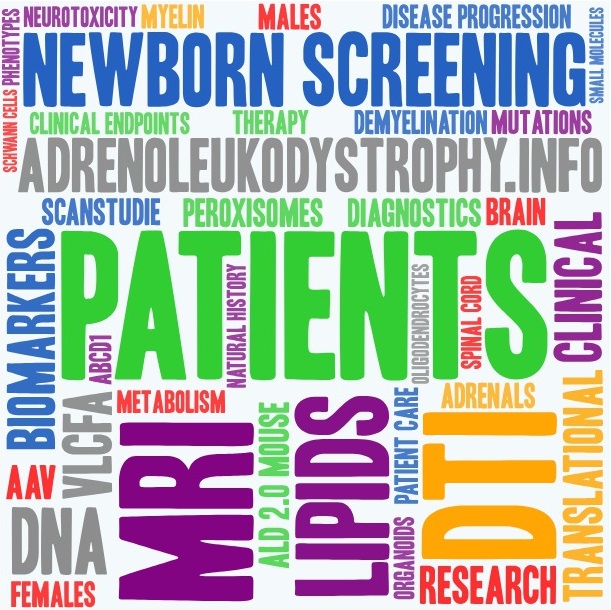The ALD group (principal investigators: Stephan Kemp and Marc Engelen) is part of the Laboratory Genetic Metabolic Diseases and the Department of (Pediatric) Neurology of the Amsterdam University Medical Centers (AMC).
Identical gene mutations should lead to specific phenotypes; however, this simplistic view does not adequately address the widely varying phenotypes that are commonly observed in many inborn errors of metabolism. Indeed, even identical mutations can lead to widely variable clinical phenotypes, which suggests that additional factors modify disease manifestations.
This situation is clearly exemplified by X-linked adrenoleukodystrophy (ALD), which is the most common leukodystrophy, but also one of the most puzzling inborn errors of metabolism of the central nervous system.
All ALD patients have a mutation in a single gene (ABCD1) and accumulate very-long-chain fatty acids (VLCFA). The disease, however, is characterized by a striking and unpredictable variation in disease course among men, ranging from adrenal insufficiency to rapidly progressive and fatal cerebral demyelination (cerebral ALD). In adulthood, virtually all men, and 80% of women, develop progressive spinal cord disease. In the absence of a genotype–phenotype correlation, predicting the disease course is impossible, even within individual families.
Treatment options are limited. For boys with early stage cerebral ALD, a bone-marrow transplant may be curative. However, for the spinal cord disease no disease modifying therapy is available. The goals of our research are to unravel the pathophysiology of ALD, to predict the clinical outcome of newborns with ALD, to develop a treatment for ALD, and implement ALD newborn screening in the Netherlands (see the website of the SCAN study for more information and updates: www.scanstudie.nl).
The strength of our research lies in the close interaction between the clinicians involved in the care of ALD patients and the researchers. This enables us to translate new scientific findings to the clinic and vice-versa translate clinical questions into their scientific components.
Research
